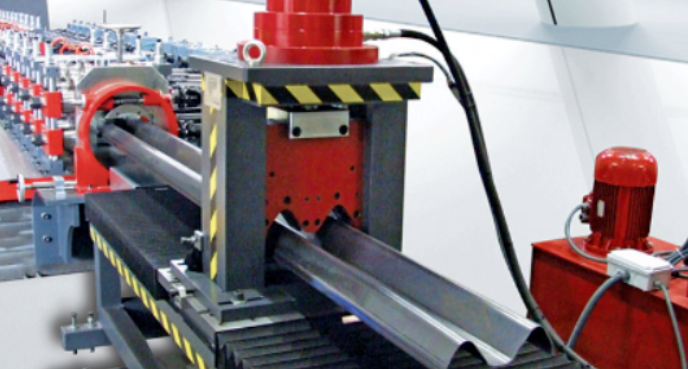
Posted on Thursday, October 17, 2024
The roll forming industry in Ghana holds immense potential for growth and sustainability, particularly through the strategic use of locally sourced materials. By integrating indigenous materials into roll forming processes, Ghana can not only enhance its manufacturing capabilities but also promote economic growth, create jobs, and reduce dependency on imports. Here’s a detailed exploration of this concept:
Roll forming is a manufacturing process that involves the continuous bending of metal sheets into desired shapes and profiles through a series of rollers. This technique is widely used in producing roofing sheets, wall panels, gutters, and various structural components. The benefits of roll forming include high efficiency, minimal waste, and the ability to create complex shapes with precision.
Ghana is endowed with abundant natural resources, including various metals and minerals that can be utilized in roll forming. Here are some key points highlighting the advantages of using local materials:
While the benefits are substantial, several challenges must be addressed to successfully implement the use of local materials in roll forming:
The potential for leveraging locally sourced materials in roll forming processes in Ghana is significant. By embracing this approach, the country can promote economic growth, create jobs, and enhance sustainability. With the right investments in infrastructure, quality control, and market awareness, Ghana can position itself as a leader in the roll forming industry, reducing dependency on imports while fostering a vibrant local economy.
The future of roll forming in Ghana can be bright, particularly when it harnesses the strength of its own resources and communities, paving the way for a more self-reliant and prosperous nation.

Used Purlin Roll Forming Machines for Sale Worldwide
Posted on Sunday, January 25, 2026
Pre-Owned Roll Forming Machines for Purlin & Structural Steel Profiles

Used Roof Panel Roll Forming Machines for Sale Worldwide
Posted on Sunday, January 25, 2026
Pre-Owned Roll Forming Machines for Roofing Panel Production

Used Roll Forming Machines for Sale Worldwide
Posted on Tuesday, January 20, 2026
Pre-Owned Roll Forming Machines with Inspection, Verification & Global Support

Steel Coil Supply for Roll Forming Machines Worldwide
Posted on Tuesday, January 20, 2026
Reliable Steel Coil Supply for Roll Forming, Fabrication & Manufacturing Applications
Copyright 2026 © Machine Matcher.